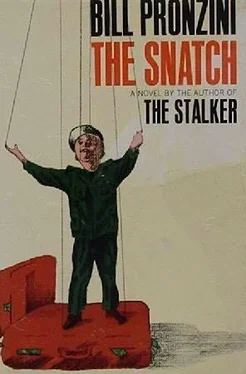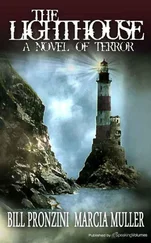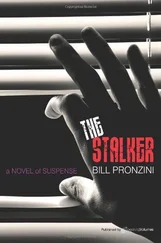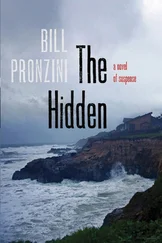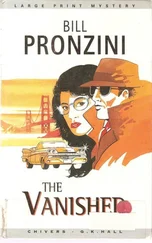Bill Pronzini - The Snatch
Здесь есть возможность читать онлайн «Bill Pronzini - The Snatch» весь текст электронной книги совершенно бесплатно (целиком полную версию без сокращений). В некоторых случаях можно слушать аудио, скачать через торрент в формате fb2 и присутствует краткое содержание. Год выпуска: 0100, Жанр: Криминальный детектив, на английском языке. Описание произведения, (предисловие) а так же отзывы посетителей доступны на портале библиотеки ЛибКат.
- Название:The Snatch
- Автор:
- Жанр:
- Год:0100
- ISBN:нет данных
- Рейтинг книги:4 / 5. Голосов: 1
-
Избранное:Добавить в избранное
- Отзывы:
-
Ваша оценка:
- 80
- 1
- 2
- 3
- 4
- 5
The Snatch: краткое содержание, описание и аннотация
Предлагаем к чтению аннотацию, описание, краткое содержание или предисловие (зависит от того, что написал сам автор книги «The Snatch»). Если вы не нашли необходимую информацию о книге — напишите в комментариях, мы постараемся отыскать её.
The Snatch — читать онлайн бесплатно полную книгу (весь текст) целиком
Ниже представлен текст книги, разбитый по страницам. Система сохранения места последней прочитанной страницы, позволяет с удобством читать онлайн бесплатно книгу «The Snatch», без необходимости каждый раз заново искать на чём Вы остановились. Поставьте закладку, и сможете в любой момент перейти на страницу, на которой закончили чтение.
Интервал:
Закладка:
The rest of it is simple enough to figure. You brought me into the kidnapping in the beginning because you needed a witness to the money exchange, a corroborator that a kidnapping had taken place, when you went to the police after you had the money and Lockridge was on his way back to Cleveland; Channing would have expected, demanded, that the affair be reported as soon as Gary was returned home. You asked me to keep working for you when the boy was still missing for just the reason you gave me in the hospital: you wanted all the men available looking for Gary. And you asked me to stay on tonight because it would not have seemed proper to dispense with my services after I had been the one to find your son; and perhaps because you wanted to punish your wife-and Proxmire-by having me question them about a possible complicity. That would be the reason, too, why you told me tonight about the affair between them.
All that remains, Martinetti, is the question of Art Shanley. When I talked to you that first afternoon in your study, you went to the drapes and looked out at the rear grounds; you must have seen the gardener-Glen Shanley-out there, and later assumed that he might have overheard something between you and me, or between you and Channing earlier. It’s likely that you didn’t make any connection at all at first, because you were too upset by the hijacking and then too concerned, in spite of it all, for Gary’s safety. But once the District Attorney’s man, Reese, found the phone bug-and once I reported locating Gary-you had time to think and remember seeing the gardener.
But how did you know about Glen Shanley’s brother, Art, here in Half Moon Bay? Glen’s wife would have told me if you had talked to her. Well, maybe Glen mentioned his brother at one time or another, also mentioned that Art dabbled in electronics, and you recalled that, extrapolated it. You couldn’t have known for certain that Art Shanley was the hijacker, but you had a strong suspicion, and that was enough for you to come out here tonight …
I stopped talking mentally to Martinetti, watching him closely now. He seemed to be swaying slightly, like a frail and withered tree in a strong wind. He was no longer looking at me or even through me. He was looking around me to where the body of Art Shanley lay in its coagulating blood on the floor.
A sound that was something between a cough and a sob came from deep within him, perhaps from the very core of him. And he began talking again, in that same dead, unhuman voice. “I didn’t want to do this, I didn’t want to do this … I told him I’d give him fifty thousand and forget about what he’d done if he turned the rest of the money over to me, but he laughed, he laughed, he said that if he was guilty, and he was, I knew it then, oh, I could see it in his eyes, he said he would be a fool to accept that kind of offer. He tried to throw me out, he put his hands on me and we struggled and then I I I I just took the gun out of my pocket and I shot him, I shot him …”
Again he stopped talking. I said softly, “Do you remember what you said to me tonight, at your home, Martinetti? About how any man is capable of murder- and a lot of other things, too-if he’s pushed hard enough, if he’s tempted strongly enough? Well, maybe you were pushed and tempted that hard, just as this real estate thing tempted you into having your own son kidnapped. Maybe you wanted Shanley dead, even though you wouldn’t admit it to yourself, because with him out of the way you were completely safe and you would have eliminated the man who caused you so much anguish, who almost killed your son and your chance to regain a lost fortune. Maybe you did intend to kill him all along. Why else the gun? Why else would you park your car in the trees by the road fork-that’s where it is, isn’t it? — instead of driving directly up to the cottage here? Why else did you shoot him?”
“Oh God,” Martinetti whispered. “Oh God!”
“The money,” I said. “Where’s the money?”
The quivering of his lips had worsened now, and saliva glistened on them, welling at the corners like fat and obscene tears. “The suitcase, it was in the closet, I opened it and I looked at the money, all that money, and suddenly I didn’t want it any more I didn’t want it I didn’t care about it I didn’t want to see it, all I could see was him lying there in the dark, but the image of him wouldn’t go away, I killed him … I murdered him …”
“Three hundred thousand dollars,” I said half audibly. “The price of a soul.”
“I’m a murderer,” he said, “yes, I’m a murderer, I killed him don’t you know that? I murdered him murdered him murdered him …”
He kept on that way, softer and softer, the words becoming unintelligible to me, and he was speaking only to himself now, to the very essence of his being. He no longer knew I was there. He was a callous man, a hard man, a man who had been very close to crime, even to criminals, over the years, skirting the periphery of illegality and immorality, never really affected by it-and yet, he had never himself had to deal with the cold, terrifying fact of death, of murder, of the awesomeness of snuffing out a human life. Faced with the thing he had done, the circumstances which had led to the act-examining it within himself-he was unable to cope with it; it was destroying him, so quickly and so completely that the effects of that destruction were outwardly visible.
As I listened to him babbling, I realized that he was totally incapable of pulling that trigger another time, of taking a second human life-and I realized, too, that I had known all along that this was true, that I had stood facing his gun not as a brave man facing death, but as a man who knows irrevocably the outcome of a situation, knows that he will not be harmed in any way. I looked deep into Martinetti’s eyes and saw the terrible guilt, the cancerous insanity burning in their depths, and then I forced my gaze again to the gun in his hand. It was no longer pointing at me; the muzzle was angled toward the floor at my feet.
There were perhaps three steps between us, three long quick strides, and his shoulders were slumped now, muscles lax, mouth open to release his murmurings-three long quick strides. I took them without thinking any more about it and hit him the same way, a long hard right-hand flush on the point of his jaw, the shock of the impact exploding the length of my arm and into my armpit, pain through my knuckles, and he went down clean and silent, with his eyes rolling up in their sockets, sprawling out on top of the gun, covering it with his body, unmoving.
I stood looking down at him, breathing heavily. I felt nothing at all. The anger and the hatred and the disgust were gone now, and they had left nothing in their place but a hollow vacuum, a weariness that transcended the physical.
My hands were trembling and I thrust them into the pockets of my overcoat to still them, and the fingers of my right hand encountered the package of cigarettes I had bought earlier in the evening. I took it out and looked at it, and then I closed my eyes and tore open the pack and lit one and dragged smoke deep into my lungs. It was harsh and raw and hot and brought a vague weakness to my knees-it was fine.
I went over to the telephone and picked up the receiver and stood holding it, looking over at Martinetti lying very still, very old, like some crumbling sarcophagus. And, strangely, I thought then of Erika.
You were right, Erika, I thought. You were right that I’m honest and ethical and sensitive, that I don’t have a lot of flair or even a lot of guts. You were right that I’m not a hero, and that I never will be.
But you were wrong, too. You said that I’m nothing more than a little boy playing at being a detective, that I’m living in the past, in a world that never existed. But the world I live in, you live in, is a world sicker and harsher and crueler than anything in man’s imagination, a lousy world that requires men like Donleavy and Reese and Eberhardt to keep it from becoming sicker and harsher and cruder than it already is, dedicated men, Erika, men who care. I’m one of those men-how or why I got to be that way is of no real consequence-and because I am, I’m not living the lie you think I am.
Читать дальшеИнтервал:
Закладка:
Похожие книги на «The Snatch»
Представляем Вашему вниманию похожие книги на «The Snatch» списком для выбора. Мы отобрали схожую по названию и смыслу литературу в надежде предоставить читателям больше вариантов отыскать новые, интересные, ещё непрочитанные произведения.
Обсуждение, отзывы о книге «The Snatch» и просто собственные мнения читателей. Оставьте ваши комментарии, напишите, что Вы думаете о произведении, его смысле или главных героях. Укажите что конкретно понравилось, а что нет, и почему Вы так считаете.
